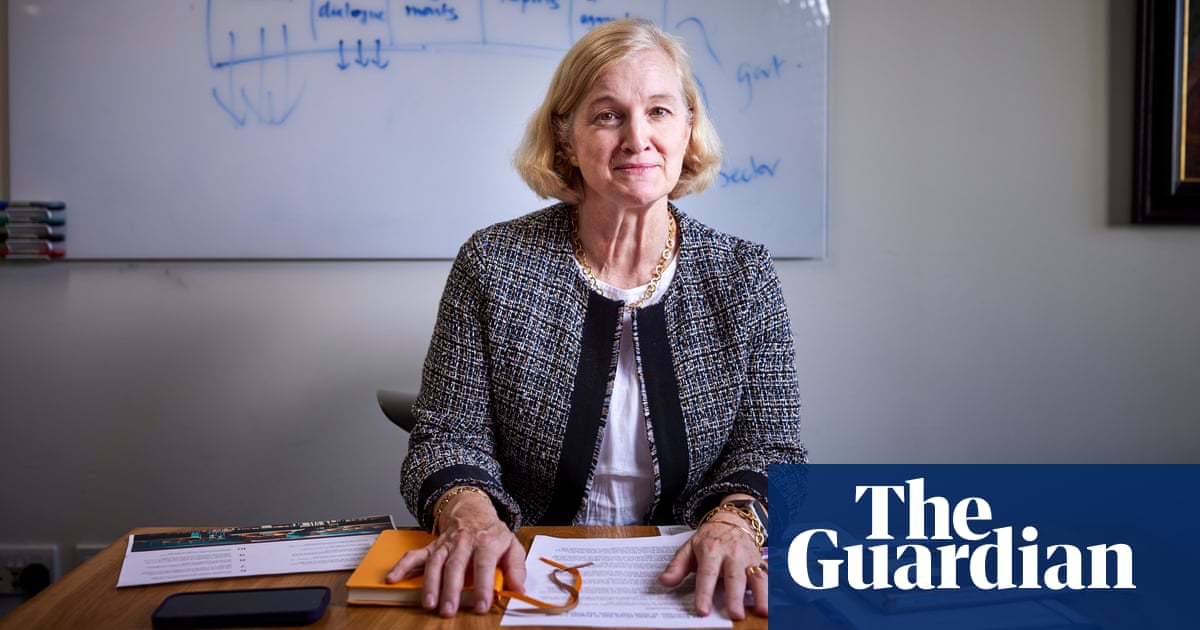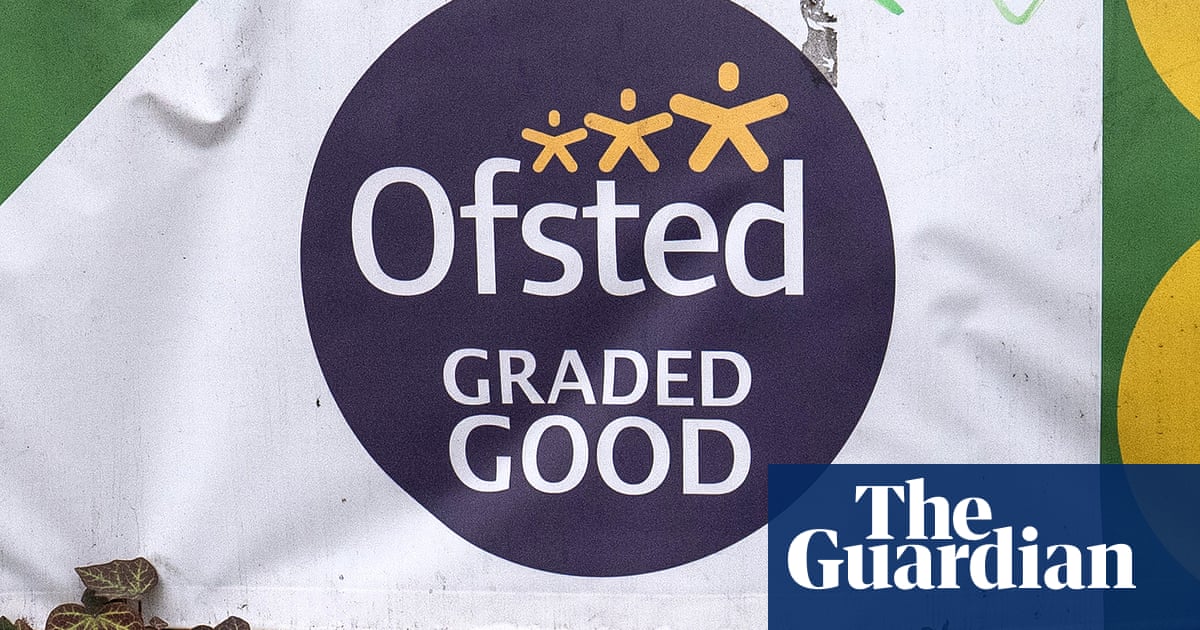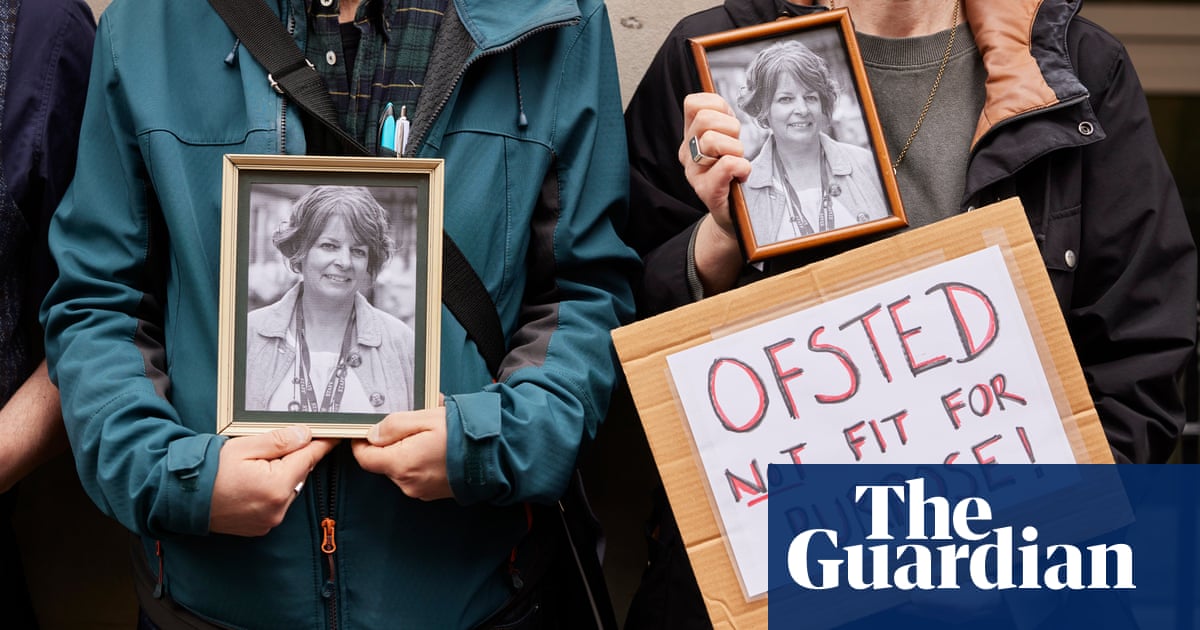
Ofsted’s former chief inspector, Amanda Spielman, has refused to concede that her organisation made errors in its handling of the inspection that contributed to the death of the headteacher Ruth Perry.
Perry killed herself last year after Caversham primary school, which she had led for more than a decade, was downgraded from Ofsted’s highest grade of outstanding, to inadequate, its lowest.
Berkshire’s senior coroner ruled that Perry’s suicide was “contributed to by an Ofsted inspection”, after an inquest heard testimony from colleagues and medical professionals of the mental distress Perry suffered during and after the inspection of the school near Reading.
Asked in an interview released on Monday if she thought Ofsted “did exactly the right thing, at the right time” over its Caversham inspection, Spielman said: “I absolutely did what I think was the right thing at a tremendously difficult time, when it would have been very easy to say we got the inspection wrong. I couldn’t do that. I didn’t do that.”
Asked why she had apologised to Perry’s family, Spielman said: “We were apologising for the distress that resulted.”
The coroner’s report described the inspection as “rude and intimidating”, and concluded: “During and after this inspection, Ruth’s mental health deteriorated significantly.”
Perry’s husband, Jonathan, revealed that Ruth feared her career was being “destroyed” by the hostile inspection, and that she felt the lead inspector was a bully.
Spielman’s remarks, in an interview with the journalist Rachel Johnson on the podcast Difficult Women, were her first on Perry’s inquest since her term as chief inspector ended in January.
Spielman’s successor, Sir Martyn Oliver, gave his “heartfelt condolences” to Perry’s friends and family on his first day in office, and shortly afterwards met with Prof Julia Waters, Perry’s sister, on behalf of her family.
Oliver immediately halted Ofsted’s school inspections in order for staff to receive extended training on alleviating the stress put on teachers during their visits.
Asked how she felt about leading Ofsted at the time of a “fabulous, much-loved head teacher’s death”, Spielman said: “It was deeply, deeply unpleasant … So you’d see Guardian headlines saying: ‘Ofsted is failing because it’s not supporting schools’ – it’s a bit like saying the driving test agency is failing because it’s not giving people driving lessons.”
Reflecting on the criticism that Ofsted attracted after Perry’s death, Spielman said: “Sometimes it’s like a doctor; sometimes the doctor has to give you a difficult diagnosis. And you cannot not be upset by it, however kindly and sympathetically they give it to you.
“And it’s the same for Ofsted inspectors. There are times when they have to give people really tough messages. And yet, unless problems are made explicit and acknowledged, the right things can’t happen, to move things on and to get things to the place that they should be for children. So these difficult conversations have to happen.”
Spielman added: “The thing I have found people incredibly unwilling to acknowledge and discuss is that there is no possible way that you can ever make everybody perfectly happy and totally protect the interests of children, and make sure that you never have to say anything to an adult that could disappoint or upset them.”
The National Education Union’s annual conference, starting on Wednesday, will vote on whether the union should lobby for Ofsted’s abolition. A poll of the NEU’s members found that only 3% regarded Ofsted as reliable and trusted, while 82% thought it should be scrapped.












